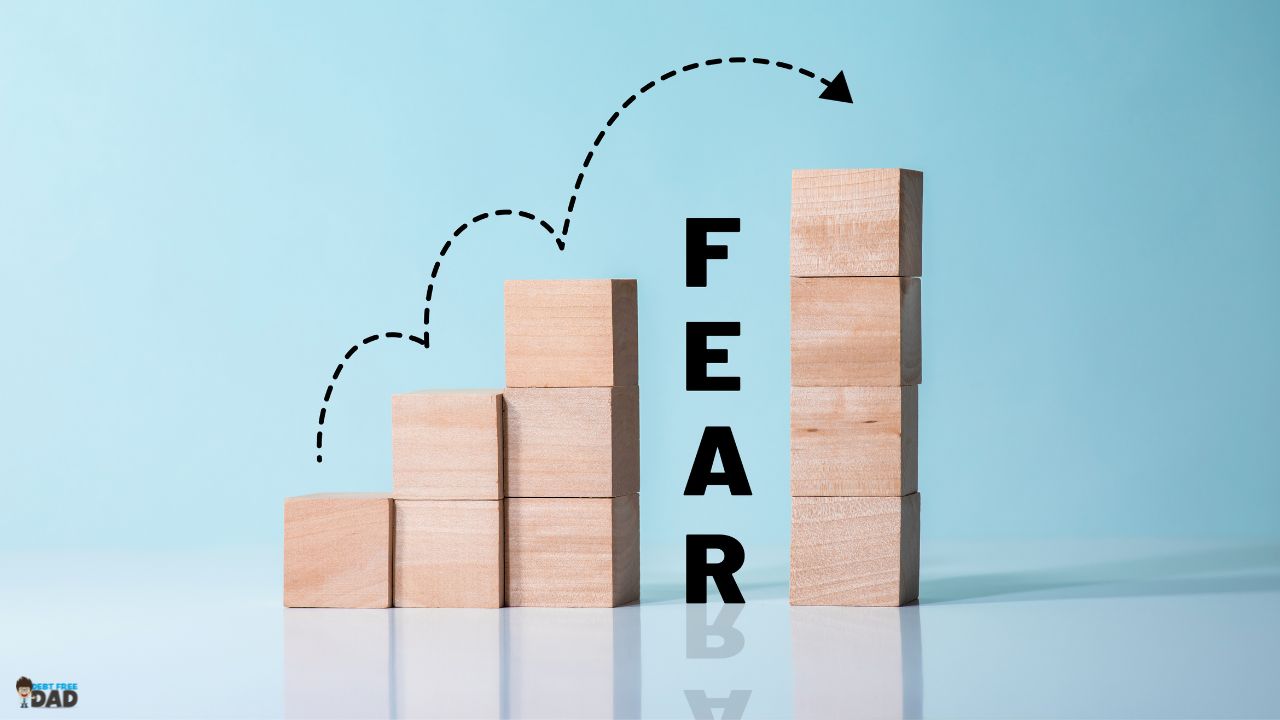Don't Let Your Feelings Fool Your Finances

Ever bought something you didn't need just because you were having a bad day? Or maybe felt a rush of panic during a scary market dip and wanted to sell everything? If so, you're not alone! Our emotions are powerful, and they can seriously mess with our money plans if we're not careful.
This week, we're diving into how our feelings – specifically fear, greed, and anxiety – can secretly pull the strings on our financial decisions. More importantly, we’ll chat about how to spot these emotional traps and manage them so you stay in control of your cash.
The Emotional Debt Cycle
Think of your journey to becoming debt-free is like climbing a mountain. Your goal is the summit – financial freedom! Your budget and debt repayment plan are your trail map. But what happens when your emotions start messing with your compass?
- Fear can make you freeze halfway up, too scared to face the total amount you owe or talk to creditors. It might whisper, "It's too much, you'll never get out."
- Greed (or maybe just intense longing for relief) can make you look for a dangerously steep "shortcut" that’s not really a path at all – like a risky, high-interest consolidation loan or falling for a "debt elimination" scam. It shouts, "Get out of debt NOW, no matter what!"
- Anxiety can make you stumble constantly, obsessing over every payment, feeling overwhelmed by interest, and sometimes leading to impulsive spending just to feel a moment of relief from the stress. It mutters, "This is hopeless, why even try?"
These feelings are totally normal when you're dealing with debt, but when they dictate our financial moves, we often dig ourselves deeper or just run in circles, feeling more stressed and further from that debt-free summit.
Studies show a strong link between high debt levels and increased stress, anxiety, and depression. Actively managing and reducing debt can, therefore, have significant positive impacts on mental health.
Your Feelings Are Valid, Your Financial Reactions Don't Have to Be
Understanding that emotions are a natural part of being human is key. But recognizing their potential to derail your financial well-being empowers you to build strategies that keep your long-term goals on track, no matter what your mood is telling you in the short term. It's time to make your brain, not just your gut, the boss of your money.
Wrestling with Fear, Greed, and Anxiety
Let's be honest, being in debt can feel like you’re constantly treading water, and it's exhausting. One bill too many, one unexpected expense, and it feels like you’re going under. As folks who've battled our own mountains of debt and found our way to solid ground, we get it. It’s not about pretending these feelings don't exist; it’s about learning to manage them so they don’t drag you further down.
Fear: The Paralyzing Grip of Debt
When debt looms large, fear can be a constant, unwelcome companion.
How it shows up with debt: Fear of never getting out of debt can be overwhelming. You might dread phone calls (hello, creditors!), avoid opening mail, or constantly worry about your credit score. This fear can lead to inaction – you're so scared of the problem that you don't take steps to address it. Fear of judgment can also stop you from seeking help or even talking about your situation with loved ones. For some, there’s even a fear of success – what if you try and fail
Managing Debt Fear:
- Break It Down: Instead of looking at the total debt (which can be terrifying), focus on one payment at a time, or one debt at a time (like the smallest one if you're using the snowball method). Small wins build momentum and reduce fear.
- Knowledge is Your Shield: Understand your rights as a consumer. Learn about legitimate debt management options. The more you know, the less scary the unknown becomes.
- Communicate: It might be scary, but often, creditors are willing to work with you if you proactively communicate that you're having trouble. Ignoring them usually makes things worse.
- Build a Small Emergency Fund: Even $500 can be a buffer against small unexpected expenses that would otherwise derail your debt payments and spike your fear levels.
Greed & Desperation: The Lure of the "Easy Way Out" of Debt
When you're desperate to escape debt, anything that promises a quick fix can seem incredibly tempting. This isn't always "greed" in the traditional sense, but a deep desire for immediate relief.
How it shows up with debt: This can manifest as falling for "debt settlement" companies that charge high fees and ruin your credit, or taking out payday loans with astronomical interest rates just to get through the week. It could be the temptation to use a balance transfer offer with a low introductory rate without a solid plan to pay it off before the high regular rate kicks in. Sometimes, it's just hoping something magical will happen instead of buckling down with a plan.
Managing "Quick Fix" Temptations:
If It Sounds Too Good to Be True, It Almost Always Is: There are no secret loopholes or magical ways to erase legitimate debt quickly without consequences.
- Focus on a Sustainable Plan: Slow and steady wins the race when it comes to debt repayment. A realistic budget and a consistent payment plan are more effective than any quick fix.
- Read the Fine Print: Always. Before signing up for any financial product or service, especially those related to debt, understand all the terms, fees, and potential downsides.
- Celebrate Small Victories: Paid off a small debt? Acknowledge it! This helps you stay motivated without needing to find a risky "big win.
"Facing your debt is scary, but avoiding it is worse. Take one small step today: list your debts, make a budget, or call a creditor. You're stronger than your debt.
Anxiety: The Constant Hum of Debt Stress
Debt anxiety is that chronic worry and stress that can affect every part of your life. It's the knot in your stomach, the sleepless nights.
How it shows up with debt: Anxiety can lead to feeling constantly overwhelmed, making it hard to concentrate or make rational decisions. It might cause you to obsessively check your bank account or, conversely, avoid looking at your finances altogether. Sometimes, this anxiety fuels emotional spending – you buy something to get a temporary mood lift, which only makes the debt and anxiety worse in the long run. It can also strain relationships.
Managing Debt Anxiety:
Create a Concrete Plan: Having a clear, written plan for tackling your debt provides a sense of control, which is a powerful antidote to anxiety. Know your next step.
- Track Your Progress: Seeing your debt balances go down, even slowly, can be incredibly motivating and help reduce anxiety. Use a chart or app to visualize your progress.
- Find Healthy Coping Mechanisms: Instead of stress-spending, find free or low-cost ways to manage anxiety, like exercise, talking to a friend, meditation, or spending time in nature.
- Focus on What You Can Control: You might not be able to wipe out all your debt tomorrow, but you can control your spending today, you can make that next payment, you can call a creditor to discuss options.
- Don't Go It Alone: Share your struggles with someone you trust. If anxiety is severe, consider talking to a mental health professional. There's no shame in seeking support for your emotional well-being, especially when dealing with something as stressful as debt.
Ultimately, becoming aware of how fear, desperation, and anxiety influence your thoughts and actions around debt is the biggest step toward freedom. It’s a tough journey, and we’ve made plenty of emotionally charged money mistakes on our own paths. The key is to offer yourself some grace, learn from setbacks, build healthier financial habits, and remember that you can regain control. Your peace of mind is worth the effort.
Remember, we've stared debt in the face and felt all these emotions too. Learning to manage the emotional side of money was just as important as learning to budget. You’re not alone in this, and you absolutely have the power to change your financial story.





Responses